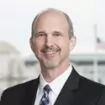The Congressional focus on the "Community Benefit" standard of tax exemption continued with the September 13, 2006, hearing conducted by the Senate Finance Committee, "Taking the Pulse of Charitable Care and Community Benefits at Nonprofit Hospitals." Chaired by Senator Charles F. Grassley (R-IA), the most immediate impact of the hearing is likely to be a draft proposal calling for a common reporting system among all nonprofit hospitals for charity care and community benefit, perhaps similar to the Catholic Health Association (CHA) Guidelines. However, Senator Grassley’s comments reflect an ongoing concern with executive compensation and benefits payable to executives of nonprofit hospitals, and with the effectiveness of governing board oversight.
There was huge public interest in the hearings, with the line forming on Tuesday afternoon. Phill Kline, Attorney General of Kansas; Kevin Lofton, Chair-Elect of the American Hospital Association; Scott Duke, CEO of Glendive Medical Center in Glendive, Montana; Nancy Kane, Professor of Health Management, Harvard School of Public Health; and Ray Hartz, Executive Director of the Legal Aid Society of Eastern Virginia testified before the committee. Notably, Service Employees International Union, which had been on earlier witness lists, did not participate in the hearing. However, the American Federation of State, County and Municipal Employees did present a written statement. A video of the hearings, together with copies of the opening and closing statements as well as written statements, is available at http://finance.senate.gov/sitepages/hearing091306.htm.
The Joint Committee on Taxation also released its latest document entitled "Present Law and Background Relating to the Tax-Exempt Status of Charitable Hospitals" dated September 12, 2006. In related action, the Finance Committee posted several documents on its website: a September 12, 2006, memorandum from Senator Grassley to reporters and editors (relating to the nonprofit hospital responses to the committee); two letters from the Federation of American Hospitals responding to Grassley’s queries; and the committee’s summaries of the responses from 10 nonprofit hospitals to the questions posed last summer by Chairman Grassley (available at http://finance.senate.gov/sitepages/grassley.htm).
As these materials suggest, Senator Grassley’s goal appears to be a common reporting system within the nonprofit hospital sector with respect to charity care and community benefit. He referenced previous Congressional testimony submitted by both the Comptroller General of the Government Accountability Office and the Commissioner of the Internal Revenue Service that "there is often little to no difference between for-profit hospitals and nonprofit hospitals when it comes to charity care and community benefits provided." He made clear at the hearing that he has not ruled out legislation in this area. To close the hearing, he directed the Finance Committee staff to "develop a discussion paper that will provide the Finance Committee members proposals to consider in addressing the issues we’ve heard discussed today and in the written testimony." He specifically referenced the proposals of the Catholic Health Association, describing them as "proposals that have been agreed to already by hundreds of hospitals," which "can serve as a starting point as well as many of the common sense suggestions provided by Professor Kane." Professor Kane’s testimony advocated the adoption of a "higher standard for federal tax exemption, one which articulates meaningful behavioral expectations of tax-exempt hospitals."
Chairman Grassley wants the discussion paper created in consultation with ranking Democratic Senator Max Baucus and interested parties. He indicated that this model is similar to that used for the charity reforms included in a recently enacted federal tax law. Regarding timing, he said that he’d "like to have a draft for public comment within a few weeks" because "it is important that we make real progress in ensuring that these billions of dollars in tax breaks actually are effective in helping those in need." Clearly the CHA guidelines (which Senator Grassley praised) will be the foundation of the discussion draft.
It is also worth noting that Senator Grassley used the hearing process to continue to focus on the executive compensation and benefit practices of nonprofit hospitals and to express his intention to seek related reforms. (Attorney General Kline also mentioned executive compensation as an area of concern.) Senator Grassley specifically criticized travel and entertainment practices and payment of country club dues: "Some nonprofit hospital executives enjoy the best hotels and great meals, all subsidized by the taxpayer. I find it especially troubling that executive after executive is having country club dues paid for by nonprofit hospitals." Perhaps more ominous in this regard is the inference that nonprofit hospitals should not be allowed to use data from comparably sized for-profit hospitals to determine executive compensation: "…not only is there often very little difference between for-profit and nonprofit hospitals when it comes to serving the community...there appears to be very little difference on executive compensation." Furthermore, Senator Grassley remains concerned with the level of governing board oversight of hospital operations, including compensation and mission-oriented activities: "I’m afraid that if nonprofit hospital boards are focusing so little attention on what they’re paying executives they’re giving even less attention to how the hospitals are helping the community and the poor."
Attending Senate Finance Committee members included: Max Baucus (D-MT); Chuck Grassley (R-IA); Trent Lott (R-MS); Jay Rockefeller (D-WV); Rick Santorum (R-PA); Chuck Schumer (D-NY); Olympia Snowe (R-ME); and Craig Thomas (R-WY). Of these members, few made any substantive oral comments. Senator Baucus’ opening statement supported a review of the Community Benefit Standard but principally within the larger context of the addressing the issue of the uninsured. Senator Snowe’s written statement also called for an examination of the standards for tax-exempt status for hospitals. Senator Schumer indicated that he was submitting a statement in defense of nonprofit hospitals. Thus, at the hearing at least, Senator Grassley was the principal advocate for changing the Community Benefit Standard and nonprofit hospitals’ executive compensation practices.
It is unclear whether the September 13 hearings ultimately will result in legislation amending the Community Benefit Standard for tax-exempt status, establishing a uniform approach to charity care reporting, or further restricting nonprofits’ executive compensation practices. However, it seems we can expect the Senate Finance Committee to continue to force the public debate of these and related practices of nonprofit, tax-exempt hospitals. As such, the hearings merit the attention of hospital governing boards and executive leadership teams.
The content of this article is intended to provide a general guide to the subject matter. Specialist advice should be sought about your specific circumstances.



